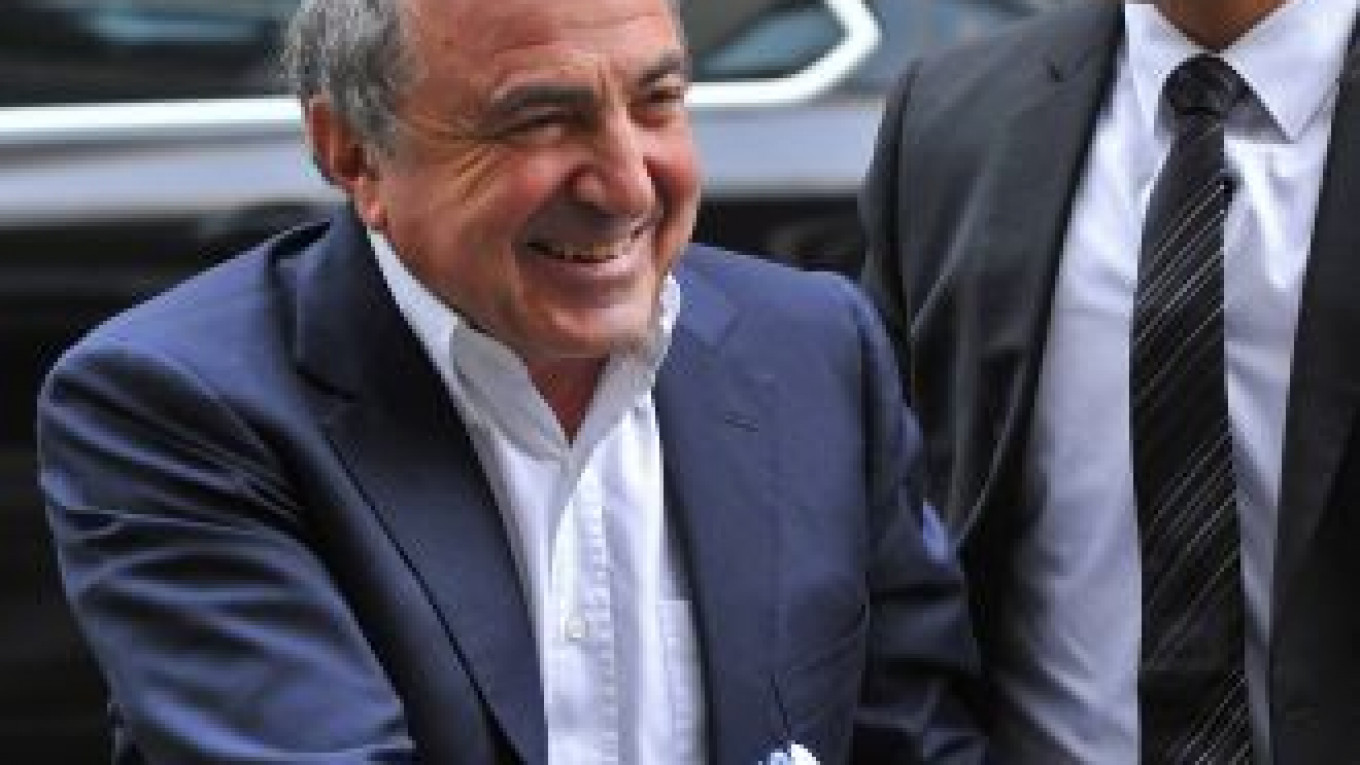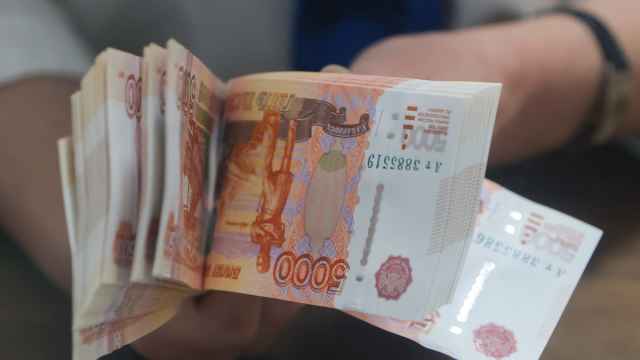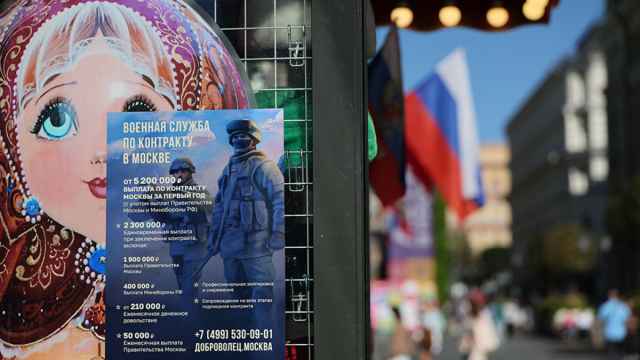LONDON — Forbes magazine has urged British authorities to take action against Russian tycoon Boris Berezovsky in relation to comments made in court that appear to be at odds with a statement he gave in a libel action against Forbes a decade ago.
"We're disappointed but not surprised by Mr. Berezovsky's admission," Kai Falkenberg, editorial counsel for Forbes, said in an e-mailed statement.
"In America, such conduct would be a serious matter. We hope that the English authorities will treat it similarly." The publisher declined to say whether it would pursue the matter in court. A Berezovsky spokeswoman declined to comment.
Berezovsky, who has been granted political asylum in Britain, is currently locked in a High Court battle in London with Russian billionaire Roman Abramovich. He is seeking more than $5 billion in damages from Abramovich, who he says intimidated him into selling his share of the Russian oil company Sibneft on the cheap.
Abramovich denies Berezovsky ever had a stake in Sibneft and says payments to Berezovsky were for political protection, not dividends or payments for shares. Berezovsky is arguing that he earned his stake by using his influence with the administration of then-President Boris Yeltsin to ensure that the companies that became Sibneft were privatized and ended up under Abramovich's control.
He said in the High Court that he had influenced the auction that led to the privatization of the oil producer by having one bidder disqualified, convincing another not to bid and persuading another to submit a low bid.
Affidavit
However, in June 2001, Berezovsky signed an affidavit, as part of his libel action against Forbes, in which he denied having lobbied Yeltsin in relation to Sibneft or other business matters and also denied the Sibneft auction had been fixed. Berezovsky was suing Forbes magazine over a 1996 article that accused him of having unfair influence in the Kremlin and using it to build a commercial empire worth over $1 billion.
Berezovsky said the article also implied that he was involved in murders of commercial rivals, something the magazine said it did not intend, and of being a mafia figure. As part of its defense, Forbes argued that Berezovsky had also used his influence with Yeltsin to gain control of the Russian broadcaster ORT. Berezovsky denied this in 2001 but acknowledged last week that he had convinced Yeltsin to privatize ORT.
Asked in court whether he had used his Kremlin contacts to orchestrate the privatization, he said: "It's correct. The president understood that because I present him the reason and it is important." When challenged about apparent inconsistencies between his testimony last week and the 2001 affidavit, the tycoon answered: "It's a good question. I just was not careful when I signed that." He said he had not properly read the document, which he said had been prepared by his lawyer, Andy Stephenson of the law firm Carter Ruck.
Stephenson said he could not comment about a case that was currently before the courts and added that he had made a statement that had been submitted in the Berezovsky-Abramovich case. The document is not yet publicly available. The Forbes libel suit dragged on for six years and was eventually settled when the magazine made a statement in court saying it had not intended to imply that Berezovsky was responsible for the murder of a former associate, accepting that no evidence existed linking him to any other murder and accepting that it had been wrong to characterize Berezovsky as a mafia boss.
The magazine also admitted an error in stating that another associate had been convicted for theft of state property.
Libel Suits Costly
Forbes' statement at the time was not related to the matters in which Berezovsky admitted inconsistencies in court. He said last week that his primary complaint about the article, entitled "Godfather of the Kremlin," related to what he saw as the characterization of him as a mafia figure, rather than the allegations of exercising political influence. Neither side disclosed how much it had spent on the case but long-running British libel trials frequently lead to costs of more than $1 million on each side, lawyers say.
Britain's strict libel rules attract many foreign parties to its courts, but libel cases have also been the subject of high-profile cases of false statements. Former Conservative cabinet minister Jonathan Aitken was jailed for perjury in 1999 after lying in a libel action that he had brought against the Guardian newspaper. In 2001, novelist and former politician Jeffrey Archer was jailed for perjury in relation to a 1987 libel action against the Daily Star.
Stephen Pollard, solicitor with Kingsley Napley, who defends clients accused of white-collar crime, said the fact that a witness has not given false testimony in the witness box does not lessen the risk of criminal prosecution. "If it can be proven that someone has lied in a formal court document, then they can, in principle, be prosecuted for perjury," he said. However, he said authorities might be reluctant to prosecute in such a case because it might be hard to prove that a witness was aware that they were signing a false document — something Berezovsky denied.
Pollard said the authorities' willingness to pursue such matters often relates to how much pressure is applied by the other side in the libel action where the alleged perjury has occurred. The Daily Star's desire to recoup the large sum it spent defending the Archer libel case led to pressure on the police to investigate Archer's perjury, Pollard said.
A Message from The Moscow Times:
Dear readers,
We are facing unprecedented challenges. Russia's Prosecutor General's Office has designated The Moscow Times as an "undesirable" organization, criminalizing our work and putting our staff at risk of prosecution. This follows our earlier unjust labeling as a "foreign agent."
These actions are direct attempts to silence independent journalism in Russia. The authorities claim our work "discredits the decisions of the Russian leadership." We see things differently: we strive to provide accurate, unbiased reporting on Russia.
We, the journalists of The Moscow Times, refuse to be silenced. But to continue our work, we need your help.
Your support, no matter how small, makes a world of difference. If you can, please support us monthly starting from just $2. It's quick to set up, and every contribution makes a significant impact.
By supporting The Moscow Times, you're defending open, independent journalism in the face of repression. Thank you for standing with us.
Remind me later.






